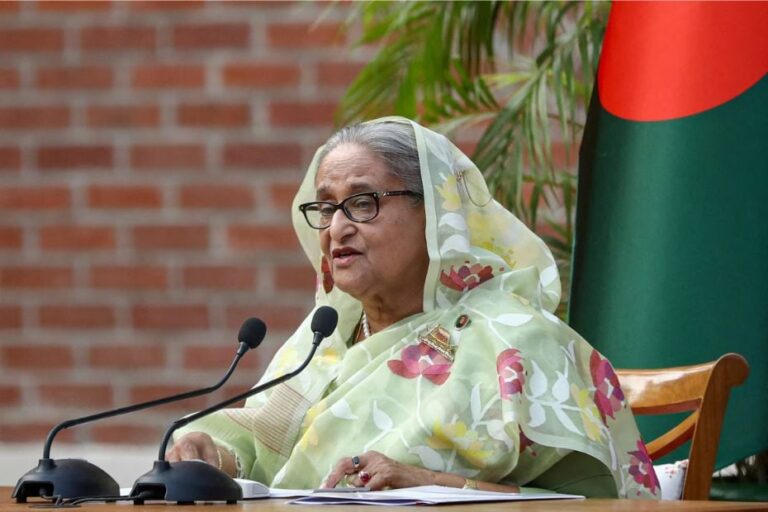Bangladesh’s ousted Prime Minister Sheikh Hasina was sentenced to death in absentia on Monday by the country’s International Crimes Tribunal for crimes against humanity, concluding a months-long trial over her role in a deadly crackdown on student-led protests in 2024.
The tribunal found Hasina guilty of ordering the use of lethal force, including helicopters and drones, against demonstrators during the July–August uprising, which followed protests over government job allocations and escalated into nationwide violence.
The crackdown, triggered by the reinstatement of a policy reserving 30 per cent of government jobs for relatives of veterans from Bangladesh’s war of independence, resulted in up to1,400 deaths and thousands injured, according to United Nations estimates. The tribunal’s verdict described Hasina as the “mastermind, planner, order-giver, and superior commander” of all crimes against humanity committed during the July uprising.
Hasina, who is currently in exile in India, did not appear for the trial, and the court delivered the sentence under heavy security. The tribunal also sentenced former home minister Asaduzzaman Khan Kamal to death, while a former police chief received a five-year sentence after turning approver and providing evidence. India has not responded to Bangladesh’s requests to extradite Hasina and Khan to face trial.
Hasina and her supporters have rejected the verdict, calling the tribunal a “kangaroo court” and claiming the proceedings were politically motivated. In a statement, Hasina told Reuters, “We lost control of the situation, but to characterise what happened as a premeditated assault on citizens is simply to misread the facts”. Her Awami League party called for a nationwide shutdown to protest the verdict.
The 2024 protests and the government’s violent response have been widely criticized. UN Human Rights Chief Volker Türk stated, “There are reasonable grounds to believe that hundreds of extrajudicial killings, extensive arbitrary arrests and detentions, and torture, were carried out with the knowledge, coordination and direction of the political leadership,” according to Reuters. The tribunal’s verdict was broadcast live in Bangladesh and was met with disorder in Dhaka, particularly outside Hasina’s father’s home-turned-museum, requiring police intervention.
Bangladesh is currently under the governance of an interim body led by Nobel Peace Prize laureate Muhammad Yunus, who took over days after Hasina’s fall in August2024. The interim government has called on citizens to remain calm and restrained in response to the verdict. The Awami League party has been banned from contesting upcoming elections, a move Hasina has criticised as disenfranchising millions.
The death sentence ruling can be appealed in the Supreme Court, but Hasina’s son Sajeeb Wazed told Reuters ahead of the verdict, “We will not appeal unless a democratically-elected government takes office with the Awami League’s participation”.

